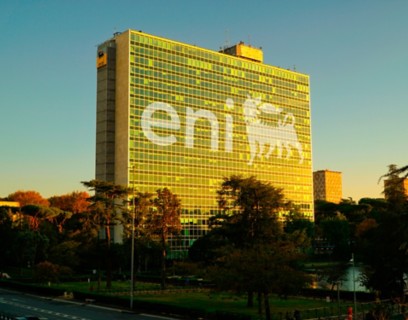
Or , our new artificial intelligence tool.
MyEni Login
- SUSTAINABILITY
Eni’s position on biomass
Eni has definitively ended the procurement of palm oil for use at the Venice and Gela bio-refineries for the production of hydrogenated biofuels.

The rules we follow meet sustainability standards
Eni is aware of the need to maintain a responsible approach to the issue of biomass that goes beyond mere compliance with the law. Therefore, to ensure sustainable management right throughout the supply chain that involves converting certain refineries into biorefineries, it has outlined a series of general principles and selective criteria and stopped the palm oil supply to the Venice and Gela biorefineries. Furthermore, where deemed necessary, Eni will evaluate the need to define specific policies for other biomasses used. The rules that Eni follows comply with sustainability standards in the selection of suppliers and the definition of clauses in biomass supply contracts and, with respect to certified raw materials, guarantee the following:
- that they do not come from cultivated areas obtained from the conversion of areas characterised by a high carbon content, such as wetlands and forests
- that they do not come from ecosystems characterised by high levels of biodiversity, such as areas covered by primary or secondary forest or in any case from ecosystems of recognised natural value
- that specific certification schemes are, where applicable, certified according to sustainability standards recognised at European or international level.
In 2024, more than 96.5% of the raw materials for the Venice and Gela biorefineries were classified as waste and residues, UCOs (Used Cooking Oils), soap slurry, animal fats and other processing wastes.
In 2021 and in 2022, Eni traced 100% of the mills and plantations from which its palm oil was sourced for the Venice and Gela biorefineries. 100% of the palm oil used was certified by ISCC (International Sustainability & Carbon Certification). Furthermore, Eni promotes the use of raw materials that:
- do not lead to a change in the use of the soil such as to cause its impoverishment or potentially hinder it by adopting good agronomic practices
- do not reduce the availability of water resources in competition with the agri-food chain
- come from land that is used in accordance with the internationally recognised rights of local populations and indigenous peoples, starting with free, open and informed prior consultation in full knowledge of the facts
- are produced in a sustainable manner that is environmentally friendly and meets the relevant social requirements, including workers' rights and the protection of health and safety.
Our strategy from here to 2050 is to transform ourselves into a company that will only sell decarbonized products, so as to limit their environmental impact as much as possible. Eni also confirms its commitment to boost its bio-refining capacity from the current 1.65 million tonnes per year to over 5 million by 2030. Eni guarantees the following with regard to the use of biomass at its plants:
- Compliance with the principles of traceability and transparency
- Continuous promotion of the optimisation of raw material usage, minimising consumption and waste and maximising efficiency
- The creation of products whose use is in keeping with the applicable sustainability standards
- The adoption of the best applicable technologies
- Adaptation to the sustainability criteria outlined in the RED recast (Directive 2018/2001).
New range of products certified for sustainability
Versalis, Eni's chemical company, obtained the ISCC Plus certification in February 2021 for monomers, intermediates, polymers and elastomers produced with sustainable raw materials, from bio-naphtha and chemical recycling, at the Brindisi, Porto Marghera, Mantua, Ferrara and Ravenna plants.
Our commitments
Eni endeavours to:
- ensure the transparency and disclosure of information relating to the biomasses used and the country of origin, providing this information at least once a year (for 2024 data, see Eni for 2024 – A Just Transition)
- select suppliers according to high sustainability standards and mutual cooperation to improve the sustainability of the supply
- collaborate with stakeholders and experts in the field to improve its knowledge and ensure compliance with the most advanced standards within the company
- develop the best technological solutions, including through its own research units
- continuously improve its procurement process in order to reduce the use of biomass that can generate competition with agri-food chains and to continue the search for alternative feedstocks
- promote, where appropriate, the use of product life cycle studies in order to monitor and reduce the associated environmental impacts
- gradually increase the share of advanced feedstocks, in line with what is defined in the 2030 objectives of the RED recast (Directive 2018/2001).
Eni’s research for the Ecofining™ technology
We have converted two traditional refineries into biorefineries using the Ecofining™ technology developed by Eni's research in conjunction with UOP. In addition, the reconversion of the Livorno refinery for the production of HVO was started in 2024. We did this to address the challenges posed by the structural crisis in refining and to comply with the requirements of European legislation on the quota of energy produced from renewable sources, anticipating the energy transition pathway. This strategy has enabled us to directly produce the quota of HVO (hydrotreated vegetable oil) biofuel necessary to comply with the legislation. Thanks to the flexibility of the Ecofining™ technology that allows us to process various types of biomass, Eni is increasing the use of alternative feedstocks (such as used cooking and frying oils, animal fats and waste from vegetable oil processing) by experimenting with advanced feedstocks (such as algae and waste oils, lignocellulosic material and bio-oils). Eni’s biofuel production complies with the requirements set by the EU voluntary schemes for compliance with sustainability criteria and the reduction of climate-changing gas emissions pursuant to the European Union’s Renewable Energy and Fuel Quality directives.
Eni has ended the supply of palm oil
In October 2022, Eni announced it would stop supplying palm oil to the Gela and Venice biorefineries for hydrogenated biofuel production, well ahead of current legislation and previous forecasts. Since October 2022, the two biorefineries are supplied for over 85% by ‘waste & residue’ raw materials, such as UCO (used cooking oils), animal fats and other biomasses governed by current European and Italian regulations.
Furthermore, in November 2022, the first load of vegetable oil produced by pressing castor, croton and cotton seeds in the Makueni agri-hub, in Kenya, reached the Gela biorefinery. These agri-feedstocks are not in competition with the food supply chain, as they are cultivated in degraded areas, or harvested from wild trees, or are obtained by enhancing agricultural by-products. As of 2024, Kenya has two agri-hubs with an annual production capacity of 70,000 tonnes of oil. Farming has expanded over an area exceeding 80,000 hectares, with a total 2024 production including waste and residues of 48,000 tonnes.
HVO to reduce emissions
Eni’s biorefineries produce hydrogenated HVO biofuels, in purity or mixed, for diesel engines, bio naptha fuel for the chemical supply chain, and bioLPG and bioJET for air transport. Available at over 1,200 Enilive service stations in Italy, it is Enilive's first HVO biofuel produced from 100% renewable raw materials. Hydrogenated vegetable oil can also be used in all type-approved engines, allowing for a reduction in CO2 emissions. According to the conventional criterion of the 'REDII’ Directive (EU) 2018/2001, the reduction of CO2eq emissions of HVOlution, used in purity along the logistic-production chain in 2022, was between 60% and 90%, compared to the fossil reference mix (i.e. 94g CO2eq/MJ), depending on the raw materials used for its production.
The energy transition meets circularity
To achieve carbon neutrality by 2050, we leverage partnerships and cutting-edge solutions for the transport of today and tomorrow.
Eni for 2024. Check out our interactive feature
Read the stories, case studies and testimonials behind our contribution to a socially equitable energy transition in the Sustainability Report.


















